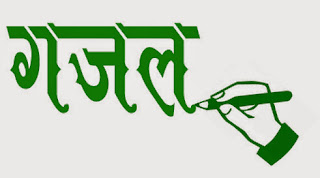Kahlil Gibran, Arabic: جبران خليل جبران, (Jan 6, 1883 – April 10, 1931) was a Lebanese essayist, novelist, mystic poet and artist. He was born in Lebanon and spent much of his productive life in the United States. His writings in both Arabic and English have influenced many readers. His first name is sometimes spelled Khalil.
Gibran was born in the village of Bsharri in Maronite Christian Lebanon, on January 6, 1883. His given and family name was Jubrān Khalīl Jubrān or Jibrān Khalīl Jibrān. In 1895, he and his mother Kamilah and siblings, Butrus, Maryana and Sultana immigrated to Boston, where he studied English. In 1898, he returned to Lebanon and , at 15 years of age entered the Maronite School in Beirut. In 1908, he went to study art in Paris for 2 years. He later studied art in Boston. In 1912, Gibran moved to New York, where he lived until his death. Gibran's multi-cultural upbringing greatly influenced his writing. In the Arab World, Gibran is regarded as a political and literary rebel. His romantic style was at the heart of a renaissance in modern Arabic literature, especially prose poetry, breaking away from the classical school. In Lebanon, he is still celebrated as a literary hero.
Gibran's writing teach a philosophy of universal love and religious tolerance based on a spirit of love that transcends cultural differences. He wrote in Arabic until 1918, when he began writing in English. His writings are all reflective of his deeply religious and mystical outlook. The publication of The Prophet (1923) established his fame in English-speaking countries. A book, The Prophet, composed of 26 poetic essays and accompanied by a number of his own mystical drawings. It remains famous to this day, having been translated into more than twenty different languages. The book is divided into chapters dealing with love, marriage, children, work, joy and sorrow, crime and punishment, freedom, pain, friendship, beauty, religion, death and other subjects that are bounded up with human existence. This book was sold well despite a cool critical reception, gaining popularity in the 1930s and again especially in the 1960s counterculture. He is the third best-selling poet of all time, behind Shakespeare and Laozi. Some of his writings deal with Christianity, condemning the corrupt practices of the Eastern churches and their clergies during that era.
Gibran held his first art exhibition in 1904 in Boston. During this exhibition, he met Mary Haskell, a respected headmistress ten years his senior. The two formed an important friendship, and she provided him with financial support for the rest of his life.
In addition to poetry, Gibran wrote fiction and non-fiction. His books in English include The Madman (1918), The forerunner (1920), Sand and Foam (1926) and Jesus, the Son of Man (1928). Many of his works are collected in Treasury of Writings of Kahlil Gibran (1989).
















 Hi! I am Nirazz and live in
Hi! I am Nirazz and live in 
